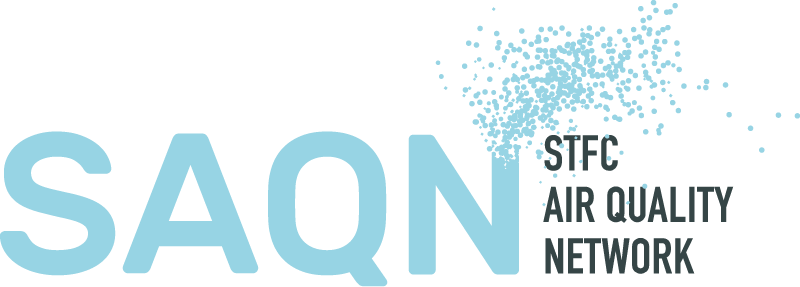Air quality is a challenge that requires collaborative effort from all areas of research. SAQN is one of several networks in the UK that are tackling this challenge. Most recently, six new networks have emerged from the UKRI Strategic Priorities Fund on Clean Air.
While each network has a specific area of focus, there are many overlaps, both in research questions and in the academic communities who are working on them. As a group of networks, we are working together to maximise the benefit to the air quality community. We are doing this by:
- Discussing plans for future events to avoid overlap or duplication
- Meeting regularly to discuss upcoming plans and other opportunities for the networks
- Working together on events and projects of mutual interest (eg Clean Air Day activities)
- Sharing best practice and ideas to enhance network activity
Details and links to each of the networks are below, and we encourage our network members to explore the events and activities taking place.

Taking a transdisciplinary approach to understand the complexity and connectivity among people, biological particulate matter (BioPM) exposure and health impacts across the indoor/outdoor continuum to inform interventions development, prioritisation and assessment of environmental and health interventions.

Coupling indoor and outdoor air flows to enable a new integrated health evidenced approach to urban building design and technology innovation. Bringing together researchers, practitioners and policy makers to develop a programme of research and impact activities.

Identifying, developing, and evaluating robust solutions that reduce the impact of indoor air pollution on two vulnerable groups: children, and those with pre-existing conditions such as COPD. A multidisciplinary approach is taken focusing technological and behavioural intervention.
www.birmingham.ac.uk/cleanair4v

HEICCAM is an innovation research network integrating interdisciplinary researchers and stakeholders to develop indoor and outdoor air quality solutions as we transition to a low carbon future. The network will build evidence on the consequences for exposure to air pollution of actions aimed at tackling climate change and poor air quality, with particular focus on the home environment.

TAPAS (Tackling Air Pollution at School) is a multidisciplinary network designed to bring stakeholders together from across society to develop the research base to design and operate healthy schools now and in the future. Our aim is to build collaboration and discussion via our events programme, our working groups, our research fund, and by engaging directly with children, schools and parents.

TRANSITION is a UK wide Clean Air Network programme led by the University of Birmingham in collaboration with nine universities and over 20 cross-sector partners, which seeks to deliver air quality and health benefits associated with the UK transition to a low-emission transport economy. The academic investigators and policy, public, commercial and not-for-profit sector partners will undertake joint research, to co-define indoor and outdoor air quality challenges and co-deliver innovative, evidence-based solutions.
Other networks with a focus on air quality and fluid dynamics include:
- Low-Energy Ventilation Network (LEVN)
- ANTICIPATE
- UK Fluids Network: Urban Fluid Mechanics
- UK Indoor Environments Group
- UK Air Quality Expert Group
- Health Effects of Modern Airtight Construction (HEMAC)
- University of Birmingham Clean Air Theme
- Air Quality Network UK
Documents and databases:
- Transition Network Launch Report
- UK Air Information Resource
- UK Gov. Clean Air Strategy 2019
- UK Gov. SAGE paper – Role of Ventilation in Controlling SARS-CoV-2 Transmission 2020
- Impacts of Net Zero pathways on future air quality in the UK
- UK Gov. Ventilation, thermal comfort and indoor air quality 2018
- UK Gov. Health matters: air pollution 2018
- UK Gov. Improving outdoor air quality and health: review of interventions
- World Green Building Council’s Health & Wellbeing Framework includes air quality
- National Engineering Policy Centre: Infection Resilient Environments: Buildings that keep us healthy and safe
- CIBSE Covid-19 Ventilation Guidance
If you’d like an item added to this list, please contact us.

